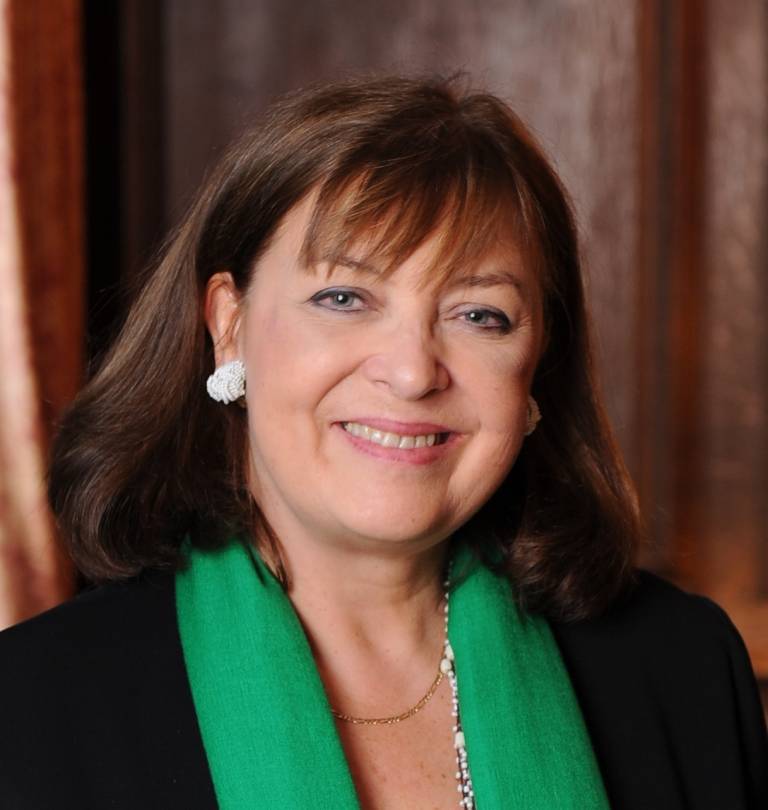The Collapse of the Soviet Union: How it happened and what followed
15 January 2019, 7:00 pm–9:00 pm

This event is free.
Event Information
Open to
- All
Availability
- Sold out
Cost
- Free
Organiser
-
Russian Studies Seminar Series
Location
-
G29 J Z Young LT016: Medical Sciences and AnatomyGower StreetLondonWC1E 6BTUnited Kingdom
Bridget Kendall, the BBC's correspondent in Moscow in 1989. will give a reflection on Mikhail Gorbachev‘s perestroika years and how they unleashed processes that led to the Soviet Union’s collapse in 1991.
Drawing on her first-hand, and sometimes eyewitness experience, covering the immediate dramas of the late Gorbachev period and Boris Yeltsin’s rise to power, she will discuss the the disintegration of the USSR and turmoil of 1990s that followed and ask if the revanchism of Putin‘s Russia is part of an understandable search for a post-Soviet identity. She will conclude by consider some possible scenarios for Russia’s future.
Bridget Kendall is a long-standing BBC Correspondent was appointed the first female Master of Peterhouse, the University of Cambridge’s oldest College, in 2016. Educated at Oxford and Harvard, she joined the BBC World Service as a trainee in 1983 and became the BBC's Moscow correspondent in 1989, covering the collapse of the Soviet Union as well as Boris Yeltsin’s rise to power.
She was then appointed Washington Correspondent before moving to the senior role of BBC Diplomatic Correspondent, reporting on major conflicts such as those in Kosovo, Iraq, Afghanistan, Libya, Syria and Ukraine. Her interviews with global leaders include Margaret Thatcher, Hillary Clinton, Mikhail Gorbachev and Vladimir Putin. She is host of BBC radio’s weekly discussion programme, The Forum
Her book The Cold War; a New Oral History (2017) covers key episodes of the Cold war conflict, as seen through the eyes of ordinary people. Her awards include the James Cameron Award for distinguished journalism, as well as an MBE.
This event runs in parallel with the final year Crisis of 1989 and the New Global Revolutions module as part of UCL SSEES’s BA History, Politics and Economics programme. It is also open to all UCL students and staff and to the public.
This event is free to attend, but you must register for a ticket via Eventbrite.
About the Speaker
Bridget Kendall MBE
at BBC
A long-standing BBC Correspondent, Bridget was appointed the first female Master of Peterhouse, the University of Cambridge’s oldest College, in 2016.
Educated at Oxford and Harvard, she joined the BBC World Service as a trainee in 1983 and became the BBC's Moscow correspondent in 1989, covering the collapse of the Soviet Union as well as Boris Yeltsin’s rise to power.
She was then appointed Washington Correspondent before moving to the senior role of BBC Diplomatic Correspondent, reporting on major conflicts such as those in Kosovo, Iraq, Afghanistan, Libya, Syria and Ukraine.
Her interviews with global leaders include Margaret Thatcher, Hillary Clinton, Mikhail Gorbachev and Vladimir Putin.
She is host of BBC radio’s weekly discussion programme, The Forum. Her book The Cold War; a New Oral History (2017) covers key episodes of the Cold war conflict, as seen through the eyes of ordinary people. Her awards include the James Cameron Award for distinguished journalism, as well as an MBE.
Other events in this series
 Close
Close

